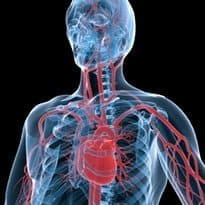Sheffield clinicians and scientists are creating a virtual human from computers to predict how diseases affect patients.
Scientists from the University of Sheffield and Sheffield Teaching Hospitals NHS Foundation Trust clinicians are working with partners throughout Europe on the development of a ‘virtual physiological human’ using computers.
It will be used to predict diseases based on the lifestyle, medical condition and physical make-up of the patient.
Trust chief executive, Sir Andrew Cash, said he thought the project could revolutionise healthcare.
“This complex technology will, for the first time, allow doctors and clinicians to see exactly how different diseases and treatments will directly affect each patient, based on their own personal circumstances and genetic make-up,” he said.
“As a result, we will have the data and knowledge that will enable patients to see into their futures – to understand what will happen if they keep following a particular lifestyle, or decide not to take a certain drug, or have a certain operation.”
Sheffield’s new Insigneo Institute for in silico medicine, which includes clinicians from the trusts and academics from university, was launched yesterday.
The institute’s scientific director, Professor Marco Viceconti, said: “Not only will the virtual physiological human give us a better understanding of how life works, it will enable doctors and clinicians to look at the whole body as one entity again, focusing on treating the patient rather than developing specific cures for specific diseases.”
Sheffield Teaching Hospital recently created a software-based prototype of a virtual 3D heart model to identify the extent of heart disease in patients without the need for invasive procedures. The prototype is to be tested on 100 patients during a three-year trial.
The trust is also creating personalised models of brain aneurysms using the patient’s CT or MRI scan.

